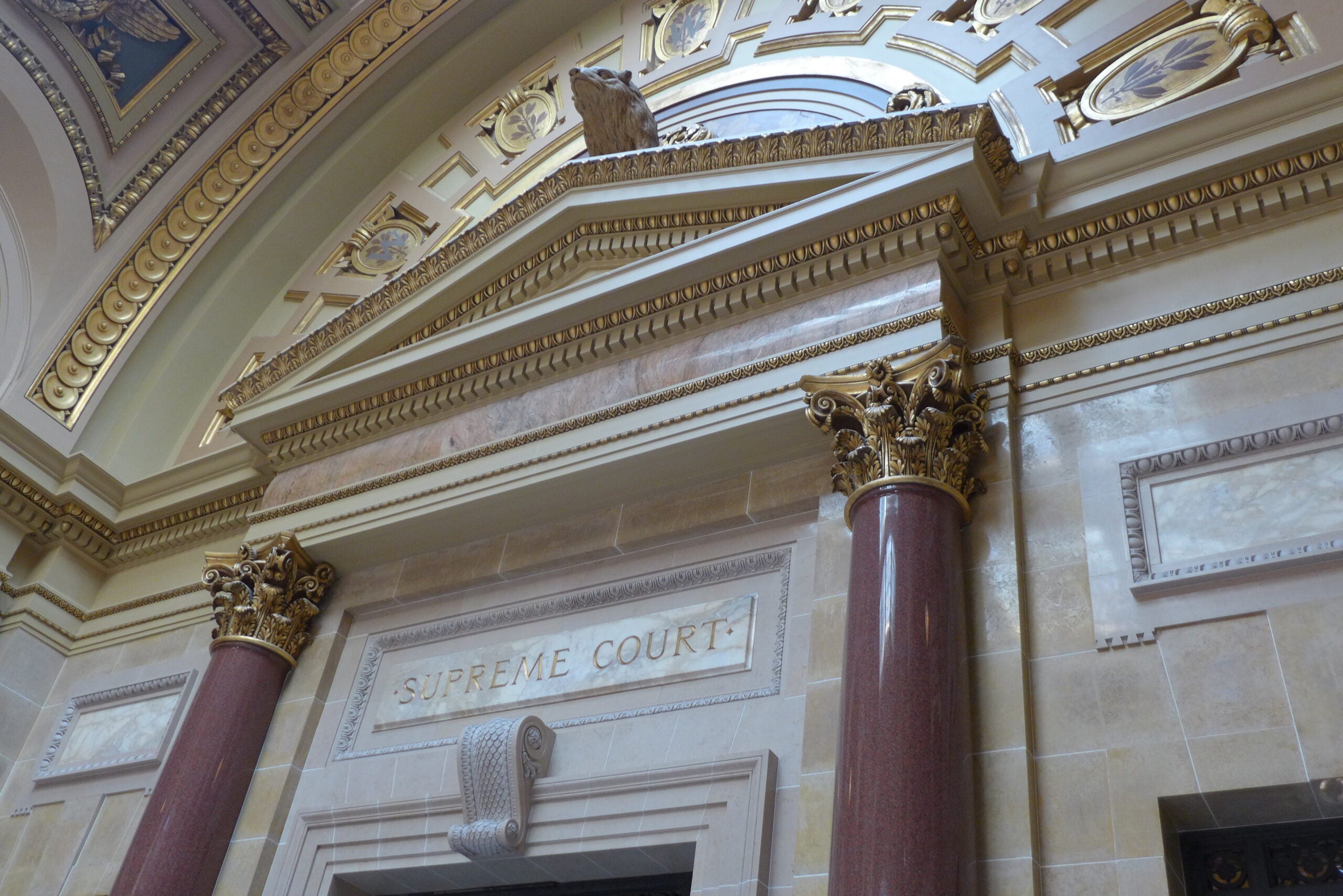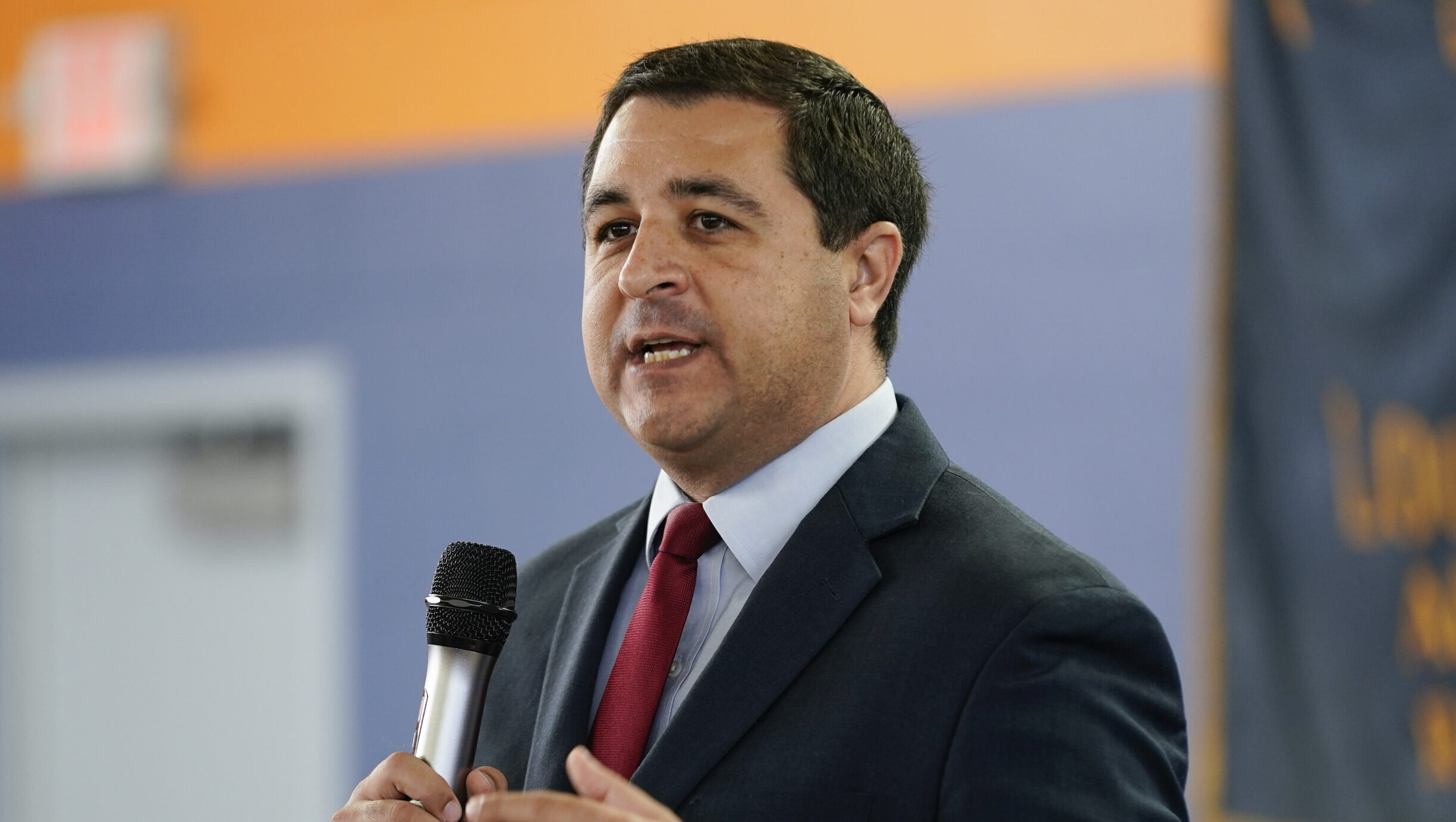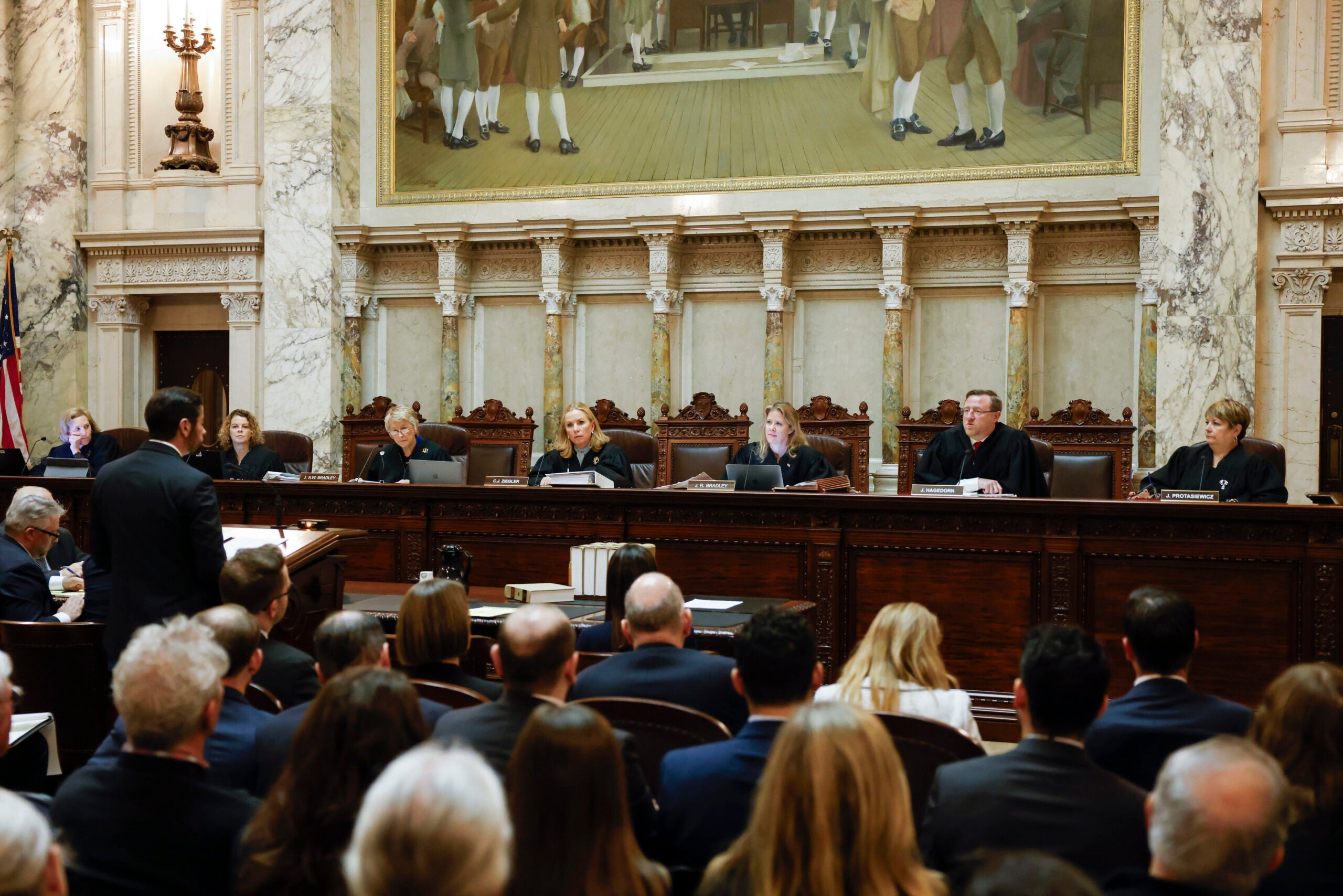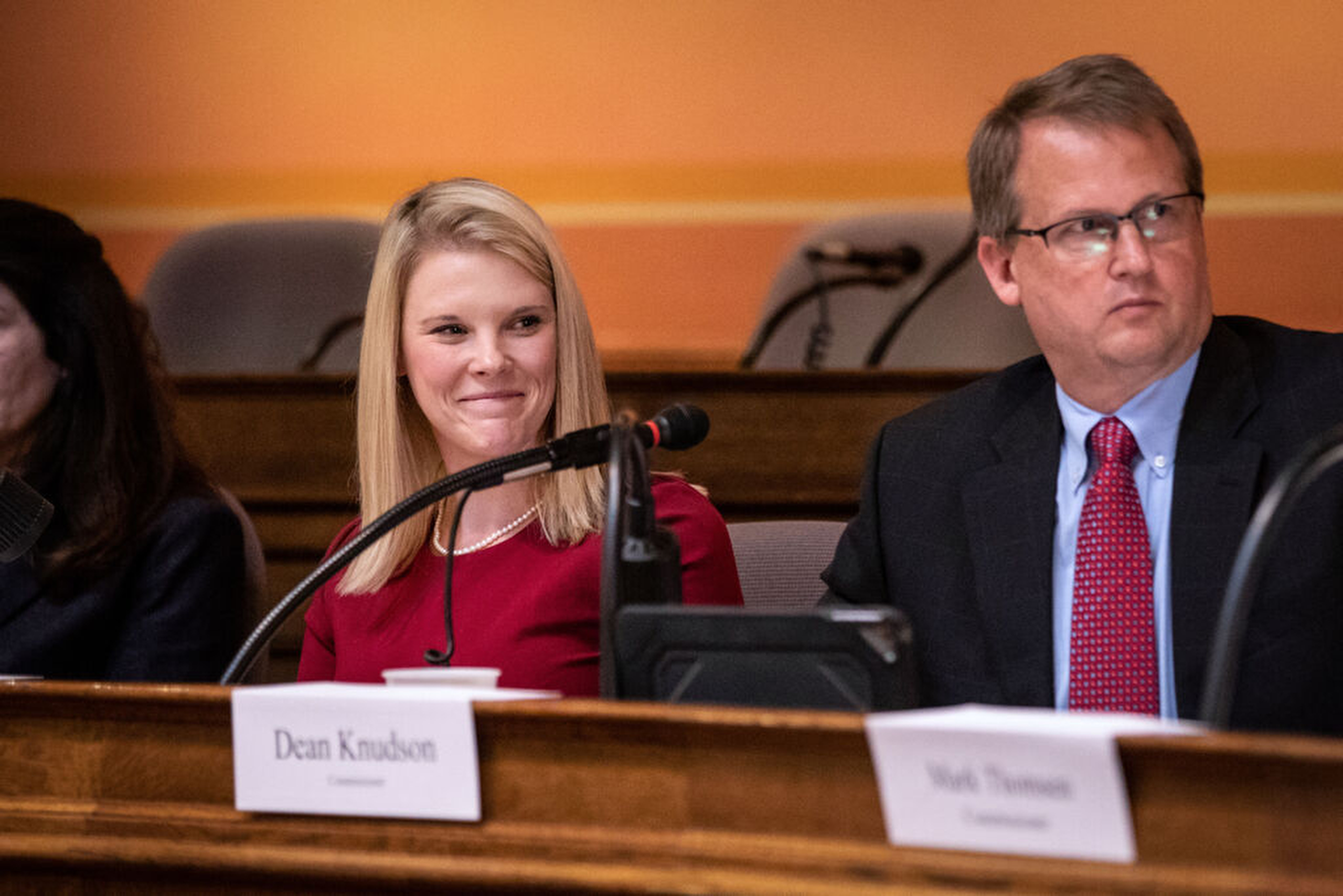The Wisconsin Supreme Court heard arguments Tuesday in a complicated constitutional clash between Gov. Scott Walker and state Superintendent of Public Instruction Tony Evers, one of Walker’s potential Democratic rivals in this year’s election.
The underlying case challenges the independence of the superintendent, but first, the court must decide whether Evers has the power to choose his own lawyer or whether Walker can pick an attorney for him.
As it stands now, Walker directed the Wisconsin Department of Justice, led by Republican Attorney General Brad Schimel, to represent Evers, even though the DOJ agrees with the group suing him.
Stay informed on the latest news
Sign up for WPR’s email newsletter.
Evers contends that under the rules that cover all lawyers and clients, he’s entitled to an attorney who will represent his point of view, an argument conservative Chief Justice Patience Roggensack raised with DOJ lawyers.
“How is it … that you are going to proceed to represent someone who, ‘a,’ doesn’t want you, and ‘b,’ thinks your position is incorrect?” Roggensack asked.
Evers also argues he should get his own lawyer because the Wisconsin Constitution vests his office with the power over the supervision of public instruction.
Solicitor General Misha Tseytlin argued that once the DOJ is asked by the governor to represent a state agency, as it was in this case by Walker, that it has the power to decide the position of state government. He disputed Evers’ argument that the state constitution gives him special rights in court.
“Independent litigation is not the supervision of public instruction,” Tseytlin said.
Once the court sorts out who can represent Evers, justices could rule on the underlying lawsuit by the conservative Wisconsin Institute for Law and Liberty.
The complaint involves administrative rules, which are the fine details of laws. When it comes to education, those rules can cover everything from school mascots to private school vouchers.
WILL wants the Supreme Court to rule that a law Walker signed last year putting restrictions on administrative rules applies to all agencies, including DPI.
The law requires agencies to submit “scope statements” for administrative rules to the Wisconsin Department of Administration, which is run by Walker.
The Supreme Court ruled in 2016 that a similar law did not apply to Evers because of his independence under the Wisconsin Constitution.
During arguments Tuesday, Justice Annette Ziegler, another member of the court’s 5-2 conservative majority, referenced that decision, known as Coyne v. Walker.
“Coyne set forth fairly strongly that Mr. Evers … is a constitutional officer and certain things cannot be taken away from him by the Legislature or elsewhere because it’s given to him by the constitution,” Ziegler said.
The last time the court dealt with this issue, former Justice David Prosser was among the justices who ruled in Evers’ favor. He has since retired and been replaced by Justice Daniel Kelly, a Walker appointee.
Speaking to reporters after arguments, Evers said that was part of the reason this issue was before the court again.
“The facts are the same, the only thing that’s different is there are different judges up there,” Evers said.
Wisconsin Public Radio, © Copyright 2025, Board of Regents of the University of Wisconsin System and Wisconsin Educational Communications Board.





